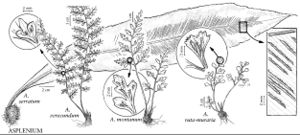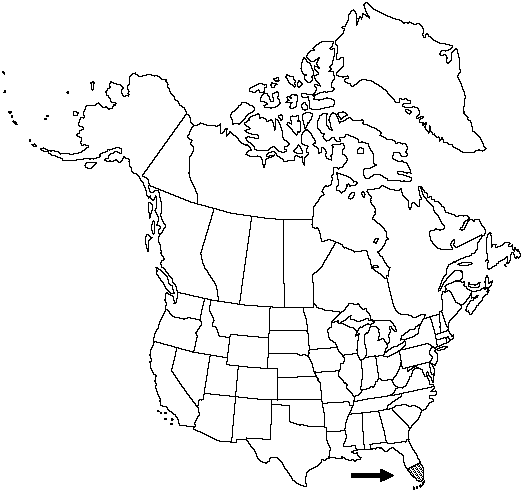Asplenium serratum
Sp. Pl. 2: 1079. 1753.
Roots proliferous. Stems erect, unbranched; scales brown throughout, narrowly lanceolate, 5–10 × 1–1.5 mm, margins entire. Leaves monomorphic. Petiole vestigial. Blade linear, oblanceolate, simple, (10–)20–40(–70) × 3–8 cm, thick, glabrous; base gradually tapered; margins entire to irregularly crenate; apex attenuate, not rooting. Rachis green throughout, dull, glabrous. Veins numerous, free, mostly immersed. Sori parallel to each other, nearly perpendicular to midrib. Spores 64 per sporangium. 2n = 144.
Habitat: Rotten logs and stumps
Elevation: 0–50 m
Discussion
Asplenium serratum is found rarely in southern peninsular Florida, where it is at the extreme edge of its tropical American range. This large simple-leaved spleenwort is called "American bird's-nest fern" because of its superficial resemblance to the Old World A. nidus Linnaeus, which is regularly grown in temperate conservatories. Asplenium serratum is unusual in having roots with abundant, matted hairs rather than scattered hairs as found in other species.
Selected References
None.

